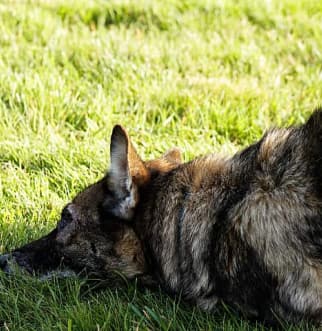
-
Find the right food for your pet
Take this quiz to see which food may be the best for your furry friend.
Find the right food for your pet
Take this quiz to see which food may be the best for your furry friend.
Featured products
 Adult Perfect Weight & Joint Support Chicken Recipe Dry Dog Food
Adult Perfect Weight & Joint Support Chicken Recipe Dry Dog FoodThis weight management and mobility support dog food was created with Hill’s unique understanding of the biology of overweight dogs.
Shop Now Adult 7+ Perfect Digestion Chicken, Whole Oats & Brown Rice Recipe Dog Food
Adult 7+ Perfect Digestion Chicken, Whole Oats & Brown Rice Recipe Dog FoodScience Diet's breakthrough nutrition supports ultimate digestive well-being & healthy microbiome for dogs age 7+
Shop Now Adult 7+ No Corn, Wheat, Soy Chicken & Brown Rice Dog Food
Adult 7+ No Corn, Wheat, Soy Chicken & Brown Rice Dog FoodSupports energy level and beautiful coat in mature dogs
Shop NowFeatured products
 Adult Savory Chicken Entrée Cat Food
Adult Savory Chicken Entrée Cat FoodPrecisely balanced nutrition with the delicious taste of savory minced chicken to help fuel the energy needs of cats during the prime of their life
Shop Now Perfect Weight Salmon & Vegetable Canned Cat Food
Perfect Weight Salmon & Vegetable Canned Cat FoodOver 70% of cats lost weight within 10 weeks when fed this nutrition
Shop Now Adult Perfect Digestion Chicken, Barley & Whole Oats Recipe Cat Food
Adult Perfect Digestion Chicken, Barley & Whole Oats Recipe Cat FoodScience Diet's breakthrough nutrition supports ultimate digestive well-being & healthy microbiome
Shop Now -
Dog
- Dog Tips & Articles
-
Health Category
- Weight
- Food & Environmental Sensitivities
- Urinary
- Digestive
- Joint
- Kidney
-
Life Stage
- Puppy Nutrition
- Adult Nutrition
- Senior Nutrition
Cat
- Cat Tips & Articles
-
Health Category
- Weight
- Skin & Food Sensitivities
- Urinary
- Digestive
- Kidney
-
Life Stage
- Kitten Nutrition
- Adult Nutrition
Featured articles
 The Incredible Science Behind Your Pet's Microbiome
The Incredible Science Behind Your Pet's MicrobiomeLearn what a pet's microbiome is, how it contributes to your pet's gut & overall health, and why nutrition is important in maintaining healthy microbiomes.
Read More Water
WaterDiscover why water is the most important nutrient for your dog or cat to live a healthy life. Find out how much water your pet should consume each day.
Read More Pet Food Storage Tips
Pet Food Storage TipsDiscover how and where to store your dry, as well as canned, dog and cat food. Learn how to find the "best before" dates on all Hill's pet food packaging.
Read More -
Find the right food for your pet
Find the right food for your pet


Even dogs bundled up in adorable sweaters and hats can experience shakes and shivers. That's because chilly temperatures aren't the only thing that causes our furry friends — and us! — to tremble.
Dogs often shake for harmless reasons, but sometimes their shivering can be a cry for help. But what causes a dog to shiver? And when should you take action? Here are six common reasons why dogs get shaky and what you can do to help.
Key Takeaways
-
Some of the most common reasons for your dog’s shaking & shivering are cold, excitement, stress & anxiety, seeking attention, pain or illness, and old age.
-
It’s important to recognize the difference between normal shaking vs. signs of a seizure.
-
A proper diagnosis is essential for treating a dog’s excessive shaking or shivering, so contact your veterinarian if you have concerns.
1. Cold
The simplest answer for, "Why is my dog shaking?" is that they're cold. Shivering in frigid environments is an involuntary response designed to get the blood pumping in order to raise body temperature and prevent hypothermia. Smaller dogs, such as Chihuahuas, may be more prone to shivering than larger breeds due to their lack of body mass and insulation, explains Wag!.
What you should do: If your dog doesn't fare well in the cold, consider limiting their exposure. A dog sweater or coat can also help them stay warm and ease shivers. Also, give them a warm place to curl up; a dog bed near a heating vent with a warm blanket can do just the trick on a cold night.
2. Excitement
Some dogs shiver when they're happy or excited. No one is sure why, but one theory is that it's an outward manifestation of intense emotion. There's no danger in this type of shivering; it will most likely stop once they calm down.


Tasty Tips
Since our first pet food in the late 1930s, we’ve set out to create differences you can see, feel and trust.
3. Stress, Anxiety and Fear
Other intense emotions that can cause shivers are fear and anxiety. While shivering, in this case, isn't harmful in and of itself, stress isn't any better for your dog than it is for you.
What you should do: Do your best to reassure your dog and, if possible, remove the source of the stress. If your dog is prone to shaking during thunderstorms, for example, try to help them stay calm by introducing therapeutic toys or masking the sounds of thunder. In general, if you notice something consistently turns your pup into a shaking state, try to redirect their attention. Dogs are also very perceptive and if you are stressed, anxious or afraid, they are very good at mimicking your emotions. In certain situations, when you remain calm and ignore a stressor in your house, your dog can pick up on it and learn that it's nothing to be anxious about.
4. Seeking Attention
However, if you rush to comfort your dog every time they're shaking, they may learn that shivering is a good way to get your attention. Some dogs even turn on the shakes while begging for food to earn sympathy.
5. Pain or Illness
Shivering could be a sign that your dog is in pain or suffering from an illness. Shivering and muscle tremors can be symptoms of serious conditions such as distemper, hypoglycemia, Addison's disease and inflammatory brain disease, as well as more common ailments like an upset stomach.
Constant shivering could be a sign of generalized tremor syndrome, also referred to as shaker syndrome, a chronic condition that can be helped with medication, according to Wag!.
What you should do: Look for other signs of sickness or injury. If the shivering is accompanied by abnormal behavior or seems out of character for your dog, contact your veterinarian immediately.

The simplest answer for, "Why is my dog shaking?" is often that they're cold.
6. Old Age
It's not uncommon for weakening leg muscles to develop tremors as dogs age, but shivering could also be a sign of arthritis or joint pain.
What you should do: If you notice your aging doggy starting to shake, it's best to get them checked out by the vet.
Shaking vs. Seizures
Normal shivering and shaking are much different than a seizure, during which the muscles seize up and a dog loses both mobility and awareness of their surroundings. If you suspect your pup is having a seizure, and they're not already being treated for a seizure disorder, get them to the emergency vet ASAP.
While most causes of shivering in dogs are relatively harmless, it's best to reach out to your vet if you're wondering, "Why is my dog shaking?" They can explain what causes a dog to shiver as well as uncover if something serious may be going on. Even if there isn't cause for concern, you'll have peace of mind once you get a vet's assessment.


Jean Marie Bauhaus is a pet parent, pet blogger, and novelist from Tulsa, Oklahoma, where she usually writes under the supervision of a lapful of fur babies.

See what Vets have to say
Read reviews from the experts and see why Hill's is the #1 Veterinarian Recommended brand.
See what Vets have to say
Read reviews from the experts and see why Hill's is the #1 Veterinarian Recommended brand.




